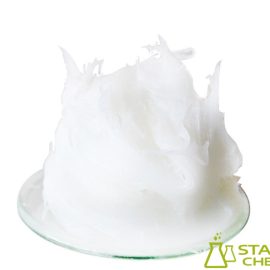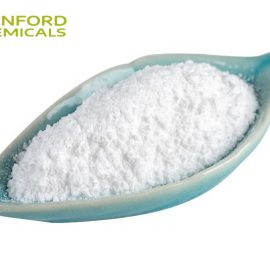Hyacross Hyaluronic Acid Elastomer Introduction
HyacrossTM Hyaluronic Acid Elastomer is a cross-linked polymer derived from natural Hyaluronic Acid (HA). Hyacross sodium hyaluronate crosspolymer appears like an elastic gel with high viscosity, and it’s able to form an invisible biological film on the surface of the skin with various effects, such as moisturizing, protection, slow release, etc.
Hyacross Hyaluronic Acid Elastomer Features
OurHyacross Hyaluronic Acid Elastomer stands as a testament to purity and ethical sourcing. Derived exclusively from fermentation, it is completely devoid of animal sources, making it non-GMO and Vegan-friendly. Our range includes high, middle, low, ultra-low, and customized molecular-weight hyaluronic acid powder.
Hyacross Hyaluronic Acid Elastomer Functions
(1)Improving the skin barrier
Hyacross can form a 3D “breathable” layer on the surface of the skin that improves the skin barrier function, reduces water evaporation from the cuticle, and prevents skin damage caused by external aggressions such as UV rays, pollution, etc.
(2)Excellent water binding capacity
The viscosity of a Hyacross solution is 2-3 times that of an HA solution at the scce concentration, which indicates that Hyacross can bind with more water molecules, because of its cross-linked structure. Hyacross behaves like a “micro-reservoir” delivering continuous water to the skin.
(3)Good resistance to Hyaluronidase
Hyacross shows better resistance to Hyaluronidase than common Sodium Hyaluronate, therefore the film formed by Hyacross on the skin surface is more stable and durable.
(4)Skin feeling
Hyacross has a higher viscosity and better thickening capacity than common HA, and it feels smooth but not sticky when dissolved in water media. Most volunteers reported that the 2% solution has the best feeling.
Hyacross Hyaluronic Acid Elastomer Specifications & Applications
| Type | TL100 | TG100 |
| Character | Colorless and transparent aqueous gel |
A colorless and transparent aqueous gel containing soft particles |
| Dosage | 1%-5% | 0.05%-2% |
| Usage | It can be added directly to the water phase, stirring till completely dissolved. |
Insoluble transparent particles are still present in the solution after this product is dissolved in the aqueous phase. The particles become smaller and even disappear during the homogenization process. |
| Feeling | Smoothing, not sticky | The particles are visible, like “HA droplets”, and “HA reservoirs”. They are spread out on the skin surface through applying. |
| INCI name | Sodium Hyaluronate Crosspolymer, Pentylene Glycol, Aqua | |
| Applications | It can be used in moisturizing, anti-aging, and anti-pollution products in different forms, such as cream, emulsion, essence, liquid, mask, etc. | |
Sodium Hyaluronate Crosspolymer Effects on Cosmetics
(1)Long-lasting Moisturizer
Compared to the control group, the skin hydration of the Hyacross group was increased by 85% after 0.5h and 110% after 1h. Hyacross significantly increased skin hydration even after 24h. Compared to the control group, the skin TEWL of the Hyacross group was reduced by 18% after 0.5h and by 22% after 1h. Hyacross significantly reduced skin TEWL even after 12h.
(2)Improving skin elasticity
Compared to the control group, the skin elasticity of the Hyacross group was significantly increased. After 4 weeks of applications, the relative skin elasticity increasing rate for the Hyacross group reached 21.6%.
(3)Smoothing skin
Randomized, double-blind, and placebo-controlled evaluation of Hyacross was carried out on 20 healthy females. The results showed a significant improvement in skin smoothness in 35% of the volunteers after 30 days.
(4)Protecting cells against UV
The relative growth rate (RGR) of HaCat cells was decreased obviously after UV irradiation. While RGR increased 19.1% after 1%Hyacross pretreatment and 22.5% after 2%Hyacross pretreatments. The results indicate that Hyacross has UV protection ability, and it can effectively reduce cell damage induced by UV irradiation.
(5)Anti-pollution
Hyacross shows the safety of skin, blocking efficacy on pollutants and functional effects of skin barriers.
Safety of Sodium Hyaluronate Crosspolymer
A modified form of skin-replenishing hyaluronic acid attached to a polymer structure that keeps it within the skin’s uppermost layers longer, allowing for enhanced hydration. Sodium hyaluronate crosspolymer is not animal-derived.
Related articles:
Hyaluronic Acid for Osteoarthritis
2 Different Ways to Produce Hyaluronic Acid and Its Applications
See: SDS Files





Reviews
There are no reviews yet.